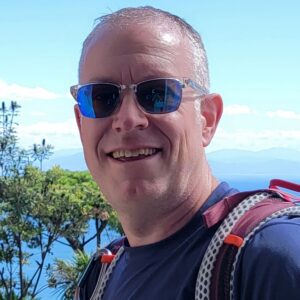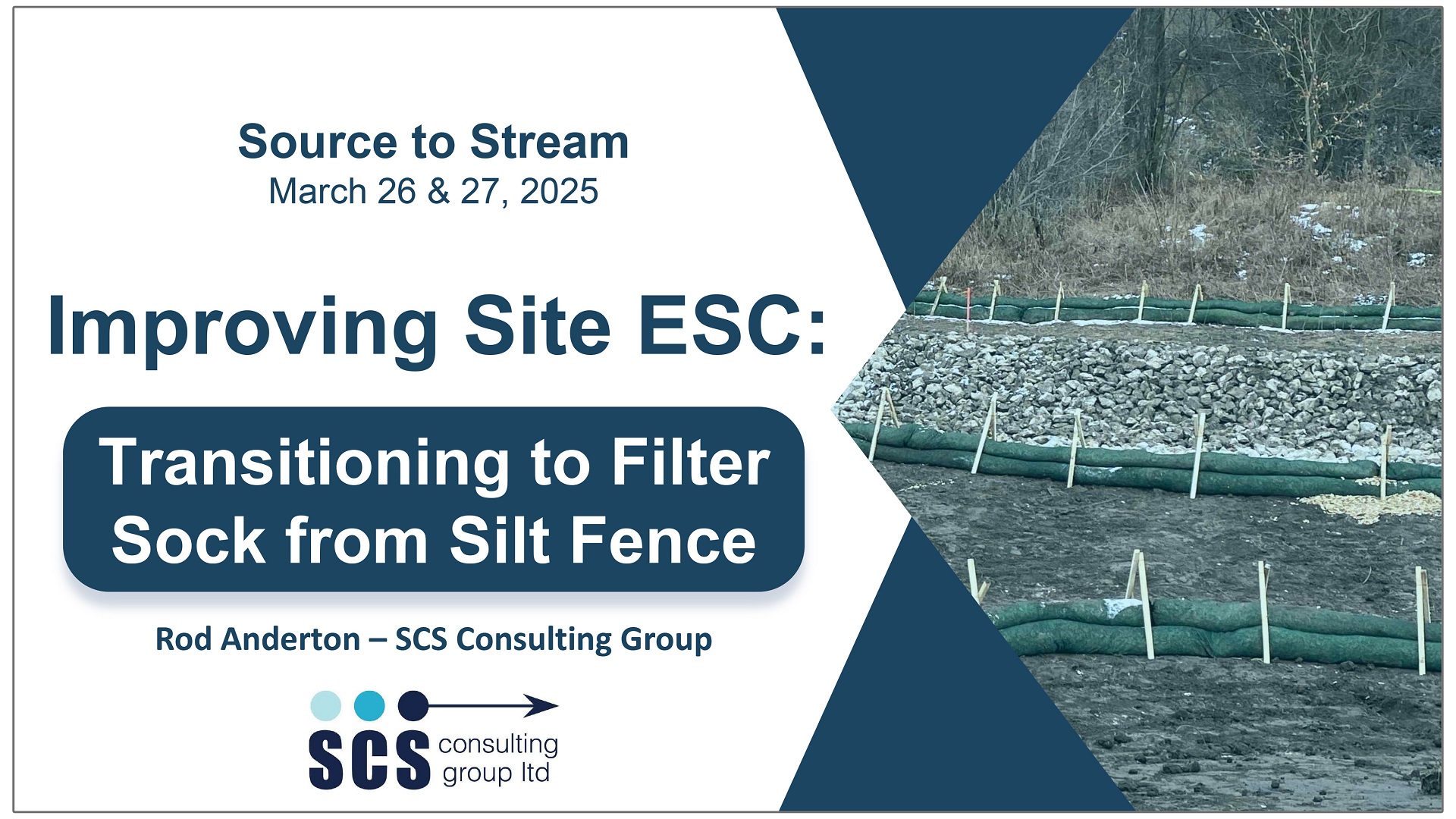TRACK 2, DAY 1
ABSTRACT
From an environmental and economically sustainable standpoint, our Engineering Consulting Firm decided to move away from silt fence use at our construction sites and instead is now recommending the use of filter sock where possible.
Filter sock has been proven to provide better filtration, longer life span, less environmental impact upon install and removal, lower cost over the life of the project, easier to maintain, easier to install, easier to repair, less of an aesthetical eyesore when damaged, minimal barrier to wildlife, does not catastrophically fail, easier to remove, often re-usable, and far less waste to transport and dispose of at end life/decommissioning.
This presentation will look at the advantages of using filter sock versus silt fence as perimeter ESC and for other ESC measures (such as check dams, flow dispersal dams, slope interruption, and sediment trap weirs).
It will discuss the challenges (and successes) we have encountered in our attempt to convert the Land Development and Earthworks industries away from the historical, outmoded, ineffective, inefficient, and obsolete methods of construction site ESC
It will also go over some of the misconceptions surrounding the use of filter sock and the proper methods of installation and filter sock type selection.
Our aim is to provide a more cost-effective solution to earthworks construction site ESC at the same time as benefitting the environment with more effective erosion and sediment control measures.
Our work is not complete, and we do not have full industry buy-in, but progress is being made and we continue to educate and push for ESC solutions that are best for both our clients and the environment.
ABOUT THE PRESENTER

Rod Anderton, SCS Consulting Group Ltd.
One of SCS Consulting Group’s environmental and ESC specialists, Rod has 35 years of experience with water quality monitoring, habitat restoration, and environmental protection.
A freshwater biologist by education, Rod worked for Toronto Water for 32 years; where he first performed and then supervised surface water monitoring, stormwater sampling, spill response, environmental enforcement, and aquatic habitat and stream channel restoration.
Rod was the lead author and trainer for the City of Toronto’s 2006 Spill Response Manual. Additional responsibilities included coordination of programs related to Sewer Asset Management, Stormwater Management and Facilities, and Green / LID Infrastructure.
Rod was also one of the lead editors and a key contributor to the 77-page City of Toronto biodiversity series Fishes of Toronto guidebook.
After retiring from the City of Toronto, he joined the SCS engineering team to oversee the environmental needs of their clients’ land development projects.
Rod brought his years of stream valley design and construction experience, and his erosion and sediment control knowledge, to SCS and is responsible for training their ESC Inspectors, supervising ESC inspections and reporting, reviewing ESC Drawing Sets and ESC Drawing Details, and assisting SCS’s staff and clients with ESC-related issues and regulatory concerns.

